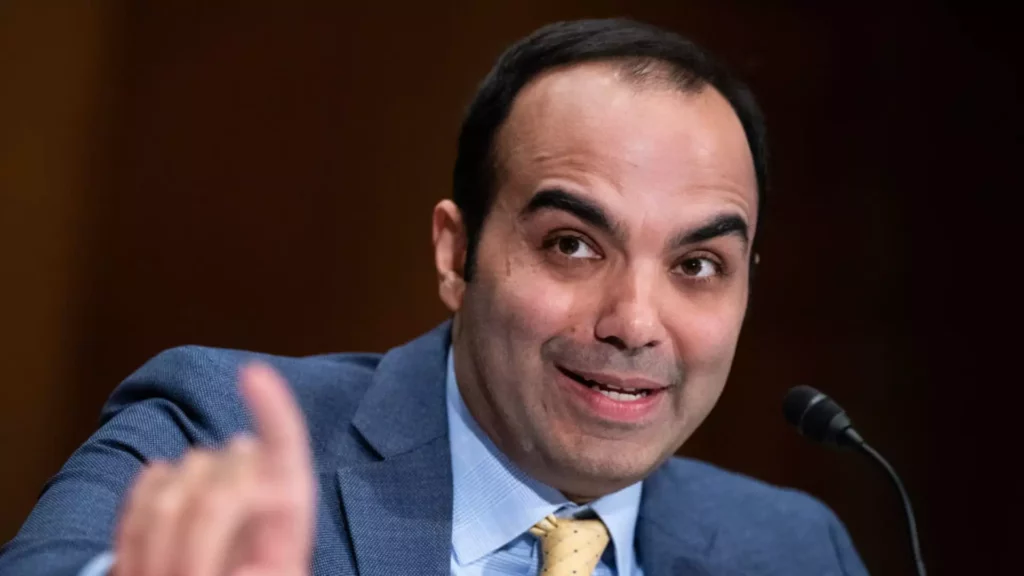In a significant move to regulate financial technology and nonbank service providers, the Consumer Financial Protection Bureau (CFPB) announced a finalized rule that extends its supervisory authority to certain tech companies engaged in financial services. This initiative arises from a growing recognition that the landscape of financial transactions is rapidly evolving, with digital payment platforms becoming essential tools for many consumers. Here’s an in-depth exploration of the implications of this rule and what it means for the financial services sector.
The CFPB’s decision marks a crucial step towards ensuring that nonbank financial service providers, particularly those with a substantial volume of transactions, adhere to regulations that have traditionally applied to banks and credit unions. By setting the threshold at 50 million transactions per year, the rule encompasses notable players in the industry such as Apple, Google, Amazon, PayPal, Block, Venmo, and Zelle. This proactive approach takes advantage of the agency’s existing authority over electronic fund transfers while significantly expanding its reach to include major technology firms that previously avoided rigorous scrutiny.
The ruling reflects an understanding that digital payment systems have transcended their initial novelty and become essential components of everyday financial management. It recognizes the need for regulatory frameworks to evolve in parallel with technological advancements, addressing concerns surrounding consumer privacy and fraud. As highlighted by CFPB Director Rohit Chopra, the consumer’s reliance on these platforms necessitates a shift in regulatory oversight to better safeguard users’ interests.
Contextually, the CFPB’s heightened focus on fintech and nonbank providers corresponds with broader trends in consumer behavior. As individuals increasingly use payment apps much like traditional banking services—storing funds and executing daily transactions—regulatory measures become paramount to protect consumers’ financial well-being. The CFPB’s assertion that these apps have become “critical financial tools” punctuates the urgency surrounding this new oversight.
Additionally, the CFPB’s approach seeks to address the disparity in oversight that has existed due to the partnerships many fintech firms have fostered with established banks. By tightening regulations on nonbank entities directly, the Bureau aims to prevent evasion of scrutiny, creating a more equitable competitive landscape between traditional banks and tech companies.
In an interesting twist, the new rule has garnered some support from the banking industry, which has typically viewed tech firms as disruptive forces. Banks have expressed concerns about the implications of fintechs operating with less regulatory oversight, especially as they compete for the same customer base. This regulatory alignment highlights a consensus that increased scrutiny is necessary to foster healthy competition while ensuring consumer safety.
By elevating standards for nonbank financial service providers, the CFPB lays the groundwork for a more transparent and fair financial ecosystem. As technology firms gain a larger market share in the financial sector, ensuring they follow stringent regulations could help mitigate risks associated with fraud and unfair practices.
As the new rule prepares to take effect, it remains uncertain how the upcoming political climate may influence its implementation. Questions loom regarding whether a change in administration could lead to revisions or even the repeal of this oversight. Nonetheless, the rule is a clear signal of the CFPB’s commitment to refining its regulatory capabilities in response to emerging market dynamics.
With the rule set to begin 30 days after publication in the Federal Register, the CFPB’s comprehensive strategy will reshape the monitoring of nonbank financial service providers. For consumers, this development could translate to enhanced security and trust in the services they use daily. As financial technology continues to advance and redefine norms, the CFPB’s vigilant oversight will be vital in addressing any attendant risks and protecting consumers in this digital age.
The CFPB’s move to supervise nonbank providers not only refines the regulatory landscape but also reflects an acknowledgment of the significance of digital payments in the modern economy. As we move forward, the success of this initiative will largely depend on effective implementation and the willingness of both regulators and the industry to adapt to shifting financial paradigms.

